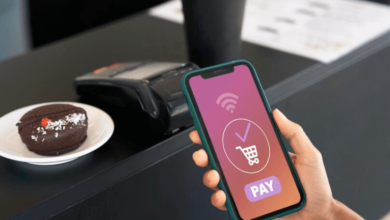How Blockchain is Revolutionizing the Security of Digital Wallets

In the fast-evolving landscape of fintech, digital wallets have become indispensable for conducting transactions, managing investments, and facilitating everyday payments. However, as their popularity grows, so does the need for enhanced security. Blockchain technology has emerged as a formidable solution, fundamentally transforming how digital wallets operate and ensuring the safety of users’ funds and data. This article explores how blockchain is revolutionizing the security of digital wallets, with a particular focus on its implications for crypto prop trading.
Understanding Digital Wallets and Their Security Challenges
Digital wallets serve as a virtual version of a physical wallet, allowing users to store, send, and receive various currencies, including fiat and cryptocurrencies. However, their increasing usage has made them prime targets for cybercriminals. Security breaches, hacking attempts, and identity theft are significant concerns for users and wallet providers alike. Traditional security measures, such as password protection and encryption, while important, are often insufficient to counter sophisticated attacks.
As the demand for secure digital wallets escalates, especially among users involved in crypto prop trading, the need for more robust security solutions has become paramount. This is where alberts and blockchain technology step in, providing an innovative approach to enhancing security.
The Role of Blockchain in Enhancing Security
- Decentralization
One of the most powerful features of blockchain technology is its decentralized nature. Unlike traditional databases controlled by a single entity, blockchain operates as a distributed ledger across multiple nodes. This decentralization minimizes the risk of a single point of failure, making it exceedingly difficult for hackers to compromise the entire system. For digital wallets, this means that even if one node is attacked, the integrity of the wallet’s data remains intact across the network. In the context of crypto prop trading, this decentralized approach protects users’ assets from potential theft and fraud.
- Immutability
Blockchain records transactions in an immutable manner, meaning that once data is added to the blockchain, it cannot be altered or deleted. This characteristic significantly enhances the security of digital wallets, as any attempt to manipulate transaction data would be easily detectable by the network. For traders involved in crypto prop trading, this immutability provides an added layer of confidence that their transaction history is secure and cannot be tampered with, thereby reducing the risk of fraudulent activities.
- Transparent Transactions
Blockchain technology offers transparency by allowing all participants in the network to view transaction histories. This transparency fosters trust among users, as it enables them to verify transactions independently. Digital wallet providers can use blockchain to create public ledgers that detail every transaction made, thereby increasing accountability. In the realm of crypto prop trading, where traders need to verify market movements and transactions, this transparency is invaluable. It helps build trust in the trading process, ultimately attracting more users to digital wallets.
- Enhanced Encryption
Blockchain employs advanced cryptographic techniques to secure data. Each transaction is encrypted and linked to the previous transaction, creating a chain of data that is difficult to breach. In digital wallets, this means that user data, including private keys and transaction information, is stored securely. Additionally, the use of public and private key pairs ensures that only authorized users can access their wallets. For crypto prop trading, this level of encryption is crucial, as it safeguards traders’ assets and personal information from cyber threats.
- Smart Contracts for Automated Security Protocols
Blockchain technology allows for the implementation of smart contracts, which are self-executing contracts with the terms of the agreement directly written into code. In the context of digital wallets, smart contracts can automate security protocols, such as multi-signature verification. This means that transactions require approval from multiple parties before they can be executed, adding an extra layer of security. For traders engaged in crypto prop trading, this feature minimizes the risk of unauthorized transactions, ensuring that only legitimate trades are executed.
The Future of Digital Wallet Security with Blockchain
As blockchain technology continues to evolve, its integration into digital wallets will likely become even more sophisticated. Innovations such as privacy-focused blockchains and zero-knowledge proofs could further enhance security, allowing users to transact privately while still maintaining the benefits of transparency. Additionally, the ongoing development of cross-chain interoperability will enable digital wallets to operate seamlessly across various blockchain networks, increasing their utility and security.
For crypto prop trading, the implications of blockchain technology are profound. The increased security measures not only protect traders’ assets but also encourage more people to engage in cryptocurrency trading, knowing that their investments are safe. As blockchain solutions become more widespread, the overall security of digital wallets will improve, fostering greater confidence in the cryptocurrency ecosystem.
Read also: Gaming as Investment: Navigating the Path to Wealth Through Cryptocurrency Rewards
Conclusion
Blockchain technology is revolutionizing the security of digital wallets, providing innovative solutions to address the vulnerabilities associated with traditional financial systems. By leveraging decentralization, immutability, transparency, advanced encryption, and smart contracts, blockchain enhances the security of digital wallets and protects users’ assets. For those engaged in crypto prop trading, these advancements are crucial, as they create a safer trading environment that encourages participation and growth. As we move into an increasingly digital future, the integration of blockchain into digital wallets will be essential in establishing secure, trustworthy financial ecosystems.





